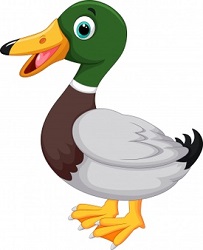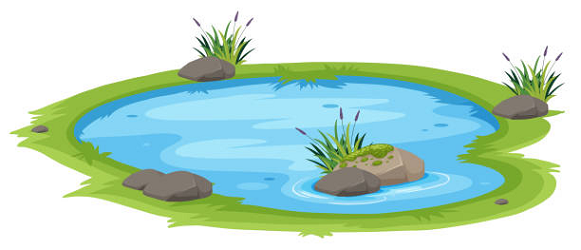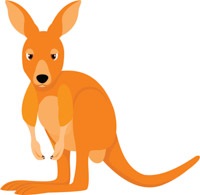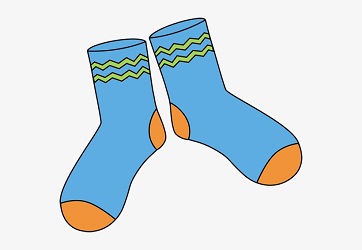THE DUCK AND THE KANGAROO for Class 9 ENGLISH
THEME
The poem "The Duck and the Kangaroo" is a humorous poem, also known as 'Nonsense Verse'. It deals with the significance of love for adventure and true friendship. Adventure and friends make life worth living and add color and joy to it.
THEME

The poem "The Duck and the Kangaroo" is a humorous poem, also known as 'Nonsense Verse'. It deals with the significance of love for adventure and true friendship. Adventure and friends make life worth living and add colour and joy to it.
EXPLANATION
"The Duck and the Kangaroo" poem ek hasy poem hai, jise 'Nonsense Verse' ke naam se bhi jana jata hai. Yeh adventure ke liye pyar aur sachi dosti ke mehatv se sambandhit hai. Adventure aur dost jeewan ko jeene laayak banate hain aur isse khushi se bhar dete hai.
EXPLANATION
"द डक एंड द कंगारू" कविता एक हास्य कविता है, जिसे 'नॉनसेंस वर्सेज' के नाम से भी जाना जाता है। यह रोमांच के लिए प्यार और सच्ची दोस्ती के महत्व से संबंधित है। रोमांच और दोस्त जीवन को जीने लायक बनाते हैं और इसे खुशियों से भर देते हैं।
ABOUT THE AUTHOR
Edward Lear (1812-1888) was an English artist, musician, author, and poet. He began his career as a poet at the age of 15. He wrote many deeply fantastical poems about imaginary creatures such as “The Dong”. His books of the humorous verse also include “Nonsense”.
ABOUT THE AUTHOR
Edward Lear (1812-1888) was an English artist, musician, author, and poet. He began his career as a poet at the age of 15. He wrote many deeply fantastical poems about imaginary creatures such as “The Dong”. His books of the humorous verse also include “Nonsense”.
EXPLANATION
Edward Lear (1812-1888) ek English artist, musician, author and poet the. Unhone 15 saal ki umar mein ek poet ke roop mein apna career shuru kiya tha. Unhone "The Dong" jaise kalpanik jeevo ke baare mein kayi gehri kalpanik poem likhi hain. Hasye kavita (humorous verse) ki unki pustakon (books) mein "Nonsense" bhi shamil hain.
EXPLANATION
एडवर्ड लेयर (1812-1888) एक अंग्रेजी कलाकार, संगीतकार, लेखक और कवि थे। उन्होंने 15 साल की उम्र में एक कवि के रूप में अपना करियर शुरू किया था। उन्होंने "द डोंग" जैसे काल्पनिक जीवों के बारे में कई गहरी काल्पनिक कविताएँ लिखीं है। हास्य कविता की उनकी पुस्तकों में "नॉनसेंस" भी शामिल है।
PARAGRAPH 1

Said the Duck to the Kangaroo,
"Good gracious! how you hop!
Over the fields and the water too,
As if you never would stop! My life is a bore in this nasty pond,
And I long to go out in the world beyond!
I wish I could hop like you!"
Said the Duck to the Kangaroo.
PARAGRAPH 1

Said the Duck to the Kangaroo,
"Good gracious! how you hop!
Over the fields and the water too,
As if you never would stop! My life is a bore in this nasty pond,
And I long to go out in the world beyond!
I wish I could hop like you!"
Said the Duck to the Kangaroo.
IMPORTANT WORDS
Bore: not at all interesting, dull, उबाऊ, अरुचिकर
Nasty: unpleasant, bad, गंदा
IMPORTANT WORDS
Bore: not at all interesting, dull, उबाऊ, अरुचिकर
Nasty: unpleasant, bad, गंदा
EXPLANATION
Kavita ki pehli panktiyon (lines) mein poet Duck ke madhaym se Kangaroo ki badhai karte hain. Duck Kangaroo ke chaal (walk) ki prashansa (appreciation) karti hain aur veh yeh iccha vyakt karti hain ki kaash vo bhi Kangaroo ki tarah chal paati. Duck kehti hain ki Kangaroo kitne khoobsurat kheto mein ghumta hain jiska koi ant hi nahi hain. Duck khud ke liye bura mehsoos karti hain kyunki uska jeevan udaasheen hain aur apne adhe jeevan ko pehle hi usne gande talaab (pond) mein bitaya hain. Duck chahti hain ki kaash veh Kangaroo ki tarah kood-kood ke duniya ghoom pati aur iss talaab se bahar nikal paati.
EXPLANATION
कविता की पहली पंक्तियों में कवि बत्तख के माध्यम से कंगारू की बड़ाई करते हैं। बत्तख कंगारू के चाल की प्रशंसा करती है और वह यह इच्छा व्यक्त करती है कि काश वो भी कंगारू की तरह चल पाती। बत्तख कहती है कि कंगारू कितने खूबसूरत खेतों में घूमता है जिसका कोई अंत ही नहीं है। बत्तख खुद के लिए खेद महसूस करती है क्योंकि उसका जीवन उदासीन है और अपने आधे जीवन को पहले ही उसने गंदे तालाब में बिताया है। बत्तख चाहती है कि काश वह कंगारू की तरह कूद - कूद के दुनिया घूम पाती।
PARAGRAPH 2

"Please give me a ride on your back!"
Said the Duck to the Kangaroo.
"I would sit quite still, and say nothing but 'Quack',
The whole of the long day through!
And we'd go to the Dee, and the Jelly Bo Lee,
Over the land, and over the sea;
Please take me for a ride! 0 do!"
Said the Duck to the Kangaroo.
PARAGRAPH 2

"Please give me a ride on your back!"
Said the Duck to the Kangaroo.
"I would sit quite still, and say nothing but 'Quack',
The whole of the long day through!
And we'd go to the Dee, and the Jelly Bo Lee,
Over the land, and over the sea;
Please take me for a ride! 0 do!"
Said the Duck to the Kangaroo.
IMPORTANT WORDS
Ride: be carried or supported by, सवारी
Quack: sound made by the duck, बत्तख की आवाज़
IMPORTANT WORDS
Ride: be carried or supported by, सवारी
Quack: sound made by the duck, बत्तख की आवाज़
EXPLANATION
Duck ne Kangaroo se anurodh (request) kiya ki veh use apni peeth (back) par savari (ride) karne de. Veh yeh bhi wada karti hain ki veh poore din ek dum shanti se Kangaroo ke peeth par baithegi aur veh “quack” ke alawa kuch bhi nahi kahegi. Duck kehti hain ki veh uski peeth par bethke poori duniya ghoomna chahti hain aur phir veh kehti hain ki veh Dee aur Jelly Bo Lee jana chahti hain aur ese hi veh saari zameen (land) par ghoomte hue samundar (sea) tak jana chahti hain. Yatra (journey) ke liye Duck bahut utsahit (excited) thi. Duck phir se Kangaroo se sawari karne ke liye vinamartapoorvak (gentle) anurodh karti hain.
EXPLANATION
बत्तख ने कंगारू से अनुरोध किया कि वह उसे अपनी पीठ पर सवारी करने दे। वह यह भी वादा करती है कि वह पूरे दिन एकदम शांति से कंगारू के पीठ पर बैठेगी और वह ‘क्वाक’ के अलावा कुछ भी नहीं कहेगी। बत्तख कहती हैं कि वह उसकी पीठ पर बैठके पूरी दुनिया घूमना चाहती हैं। और फिर वह कहती हैं कि वह डी (Dee) और जेली बो ली (Jelly Bo Lee) जाना चाहती हैं और ऐसे ही वह सारी ज़मीन पर घूमते हुए समुद्र तक जाना चाहती हैं। यात्रा के लिए बत्तख बहुत उत्साहित थी। बत्तख फिर से कंगारू से सवारी करने के लिए विनम्रतापूर्वक अनुरोध करती है।
PARAGRAPH 3

Said the Kangaroo to the Duck,
"This requires some little reflection;
Perhaps on the whole it might bring me luck,
And there seems but one objection,
Which is, if you'll let me speak so bold,
Your feet are unpleasantly wet and cold,
And would probably give me the roo-
Matiz!" said the Kangaroo.
PARAGRAPH 3

Said the Kangaroo to the Duck,
"This requires some little reflection;
Perhaps on the whole it might bring me luck,
And there seems but one objection,
Which is, if you'll let me speak so bold,
Your feet are unpleasantly wet and cold,
And would probably give me the roo-
Matiz!" said the Kangaroo.
IMPORTANT WORDS
Objection: a reason why you do not like or are against somebody/something, आपत्ति, ऐतराज़
Unpleasantly: discomfort, तकलीफ
Roo-Matiz: (rheumatism) an illness that causes pain in muscles and where your bones join together (the joints), संधिवात, गठिया (का रोग)
Reflection: thought, pondering, विचार
IMPORTANT WORDS
Objection: a reason why you do not like or are against somebody/something, आपत्ति, ऐतराज़
Unpleasantly: discomfort, तकलीफ
Roo-Matiz: (rheumatism) an illness that causes pain in muscles and where your bones join together (the joints), संधिवात, गठिया (का रोग)
Reflection: thought, pondering, विचार
EXPLANATION
Kangaroo Duck ke prastav ke baare mein shanti poorvak sochta hain. Kangaroo Duck se kehta hain ki agar veh use apni peeth (back) par baithakar lekar jayen toh veh cheez uske liye shubh (lucky) ho sakti hain lekin use ek aapatti (objection) hain. Kangaroo kehta hain ki agar Duck use izzat degi toh veh use batayega ki use kya aapatti hain aur veh Duck ko kehta hain ki uske per paani se bheege (wet) hue hain aur thande (cold) hain jo Kangaroo ko pareshaan karenge aur uski wajah se use gattiya (rheumatism) bhi ho sakti hain.
EXPLANATION
कंगारू बत्तख के प्रस्ताव के बारे में शांति पूर्वक सोचता है। कंगारू बत्तख से कहता हैं कि अगर वह उसे अपनी पीठ पर बैठाकर लेकर जाए तो वह चीज़ उसके लिए शुभ हो सकती हैं लेकिन उसे एक आपत्ति है। कंगारू कहता है कि अगर बत्तख उसे इजाज़त देगी तो वह उसे बताएगा कि उसे क्या आपत्ति है और वह बत्तख को कहता हैं कि उसके पैर पानी से भीगे हुए एवं ठंडे हैं जो कंगारू को परेशान करेंगे और उसकी वजह से उसे गठिया (rheumatism) भी हो सकती हैं।
PARAGRAPH 4

Said the Duck, "As I sat on the rocks,
I have thought over that completely,
And I bought four pairs of worsted socks
Which fit my web-feet neatly.
And to keep out the cold I've bought a cloak,
And every day a cigar I'll smoke,
All to follow my own dear true
Love of a Kangaroo!"
PARAGRAPH 4

Said the Duck, "As I sat on the rocks,
I have thought over that completely,
And I bought four pairs of worsted socks
Which fit my web-feet neatly.
And to keep out the cold I've bought a cloak,
And every day a cigar I'll smoke,
All to follow my own dear true
Love of a Kangaroo!"
IMPORTANT WORDS
Worsted: a kind of cloth made of wool, मुलायम ऊनी कपड़ा
Cigar: a roll of dried tobacco leaves that people smoke, तम्बाकू की सुखी पत्तियों से बना रोल
Cloak: a sleeveless outdoor overgarment that hangs loosely from the shoulders, चोग़ा पहनना, श्रग
IMPORTANT WORDS
Worsted: a kind of cloth made of wool, मुलायम ऊनी कपड़ा
Cigar: a roll of dried tobacco leaves that people smoke, तम्बाकू की सुखी पत्तियों से बना रोल
Cloak: a sleeveless outdoor overgarment that hangs loosely from the shoulders, चोग़ा पहनना, श्रग
EXPLANATION
Duck ke paas Kangaroo ki samasya ka solution mil jata hain. Duck kehti hain ki veh bhi patthar (rock) ke ooper bethi hui thi aur issi baare mein soch rahi thi aur isliye usne chaar jodi mulayam socks khareede hain jo uske pero ko saaf aur garam rakhenge. Iske alawa veh anye kapde jaise ki shrug (cloak) bhi le jaa rahi hain aur veh sath mein cigar bhi rakhegi aur veh rozana smoking karegi aur apne priye (dear) Kangaroo ki company ka aanand uthayegi.
EXPLANATION
बत्तख के पास कंगारू की समस्या का समाधान मिल जाता है। बत्तख कहती हैं कि वह भी पत्थर के ऊपर बैठी हुई थी और इसी बारे में सोच रही थी और इसलिए उसने चार जोड़ी मुलायम मोजे खरीदे है जो उसके पैरों को साफ और गर्म रखेंगे। इसके अलावा वह अन्य कपड़े जैसे कि श्रग (cloak) भी ले जा रही हैं और वह साथ में सिगार भी रखेगी और वह रोजाना एक सिगार धूम्रपान करेगी और अपने प्रिय कंगारू की कंपनी का आनंद उठाएगी।
PARAGRAPH 5
Said the Kangaroo, "I'm ready! All in the moonlight pale;
But to balance me well, dear Duck, sit steady!
And quite at the end of my tail!"
So away they went with a hop and a bound,
And they hopped the whole world three times round;
And who so happy — 0 who,
As the Duck and the Kangaroo?
PARAGRAPH 5
Said the Kangaroo, "I'm ready! All in the moonlight pale;
But to balance me well, dear Duck, sit steady!
And quite at the end of my tail!"
So away they went with a hop and a bound,
And they hopped the whole world three times round;
And who so happy — O who,
As the Duck and the Kangaroo?
IMPORTANT WORDS
Pale: not bright or strong in colour, फ़ीका
IMPORTANT WORDS
Pale: not bright or strong in colour, फ़ीका
EXPLANATION
Ant mein (at last) Kangaroo Duck ke iss tarah vinamr (gentle) nivedan ko suyikaar (accept) kar leta hain aur use peeth (back) par bithakar poori duniya ki savari (ride) karane ke liye raaji ho jata hain aur veh Duck se kehta hain ki veh bina hile-dule (steady) bilkul chup-chap uski peeth par bethe aur ek chandini raat (pale moonlight) mein theek issi tarah Duck bina hile-dule Kangaroo ki pooch (tale) par sitharta se beth jaati hain aur veh sair (walk) par nikal jaate hain aur poore duniya ka teen chakkar laga lete hain aur veh itne khush (happy) ho jaate hain ki poore duniya mein unke jitna aur koi khush nahi dikhta.
EXPLANATION
अत में कंगारू बत्तख के इस तरह विन्रम निवेदन को स्वीकार कर लेता है और उसे पीठ पर बैठाकर पूरी दुनिया की सवारी कराने के लिए राजी हो जाता है और वह बत्तख से कहता हैं कि वह बिना हिले-डुले बिल्कुल चुप-चाप उसकी पीठ पर बैठे और एक चांदनी रात में ठीक इसी तरह बत्तख बिना हिले डुले कंगारू की पूछ पर स्थिरता से बैठ जाती है और वे सैर पर निकल जाते हैं और पूरी दुनिया के तीन चक्कर लगा लेते हैं और वे इतने खुश हो जाते हैं कि पूरी दुनिया में उनके जितना और कोई खुश नहीं दिखता।
SUMMARY
SUMMARY
POETIC DEVICES
Alliteration: The repetition of a consonant sound at the start of two or more closely placed words.
For Example: a) Good gracious- ‘g’
b) how you hop - ‘h’
c) sit quite still, and say - ‘s’
d) But to balance- ‘b’
e) dear duck - ‘d’
f) whole world - ‘w’
Anaphora: When the same word is used at the start of 2 or more consecutive lines.
For Example: a) And to keep out the cold I’ve bought a cloak,
And every day a cigar I’ll smoke,
And they hopped the whole world three times round;
And who so happy — O who,
Both the pairs of sentences begin with ‘and’
Refrain: The use of a musical rhyming sentence throughout the poem.
For Example: a) “Said the duck to the kangaroo” has been repeated to lay stress on the request made by the duck to the kangaroo.
Enjabment: When the same sentence continues in two or more lines.
For Example: a) “And I bought four pairs of worsted socks
Which fit my web-feet neatly.”
b) “All to follow my own dear true
Love of a Kangaroo!”
POETIC DEVICES
Alliteration: The repetition of a consonant sound at the start of two or more closely placed words.
For Example: a) Good gracious- ‘g’
b) how you hop - ‘h’
c) sit quite still, and say - ‘s’
d) But to balance- ‘b’
e) dear duck - ‘d’
f) whole world - ‘w’
Anaphora: When the same word is used at the start of 2 or more consecutive lines.
For Example: a) And to keep out the cold I’ve bought a cloak,
And every day a cigar I’ll smoke,
And they hopped the whole world three times round;
And who so happy — O who,
Both the pairs of sentences begin with ‘and’
Refrain: The use of a musical rhyming sentence throughout the poem.
For Example: a) “Said the duck to the kangaroo” has been repeated to lay stress on the request made by the duck to the kangaroo.
Enjabment: When the same sentence continues in two or more lines.
For Example: a) “And I bought four pairs of worsted socks
Which fit my web-feet neatly.”
b) “All to follow my own dear true
Love of a Kangaroo!”
QUESTION ANSWERS
1. Why does the Duck appreciate Kangaroo’s hopping?
ANSWER: As a matter of fact, the Duck wants to have a ride on the Kangaroo’s back. The Duck is bored because she lives in a filthy pond. She also wishes to appreciate the world's beauty. But she knows she can't go any further than the pond. When she sees the Kangaroo hopping around on the land, she thinks to herself how fortunate the Kangaroo is to be able to travel anywhere on the land and enjoy the beauty of the world. She appreciates the Kangaroo's hopping to make her happy and then asks him to let her ride on his back and explore the wonderful world. The Kangaroo lets her sit at the end of his tail because she is sweet and polite. The Kangaroo tells the Duck to sit steady and quiet still so that he would not lose his balance.
2. How did the Kangaroo respond to the Duck’s request? What one objection did he make?
ANSWER: The Duck approached the Kangaroo with a request. She wished to hop on his back and explore the world beyond her pond. The Kangaroo did not respond immediately. The request necessitated "some minor reflection." He told the Duck that her feet were uncomfortably wet and cold. They might cause him some problems. He may experience ‘Roo-Matiz,' or joint pain, as a result of the wetness and cold. She must consider it and, if possible, devise a solution. Otherwise, he had no qualms about allowing her to ride on his back. It could bring him good fortune. As a result, there was a very clear understanding of the situation. The Duck assured the Kangaroo that she had already made all arrangements to keep out wetness and cold.
3. What precautions and preparations had the Duck already made to make her ride smooth and comfortable? What was the net result?
ANSWER: Perhaps the Duck was already aware that her feet would undoubtedly cause trouble for the Kangaroo during her pleasure ride. As a result, she had already considered it. She had already made plans to keep the wetness and cold out. She purchased four pairs of worsted socks that fit her web feet perfectly. She also purchased a cloak to keep the cold at bay. She smoked a cigar every day. The result was extremely pleasing. The Duck sat steadily and balanced herself well for a smooth and comfortable ride. At the end of his tail, she sat quietly. And they hopped around the world three times. During the ride, they appeared to be content and at ease.
4. What did the Duck do for the Kangaroo’s love?
ANSWER: The Duck bought four pairs of worsted socks which fit her web-feet neatly. Moreover, she bought a cloak to keep herself warm. She did it for the Kangaroo’s love.
5. Why did she want to have a ride on his back?
ANSWER: She felt her life had become a hell in the pond. She got bored there. So, she wanted to see the whole world. But she did not have that capability. So, she wanted to take the Kangaroo’s help.
QUESTION ANSWERS
1. Why does the Duck appreciate Kangaroo’s hopping?
ANSWER: As a matter of fact, the Duck wants to have a ride on the Kangaroo’s back. The Duck is bored because she lives in a filthy pond. She also wishes to appreciate the world's beauty. But she knows she can't go any further than the pond. When she sees the Kangaroo hopping around on the land, she thinks to herself how fortunate the Kangaroo is to be able to travel anywhere on the land and enjoy the beauty of the world. She appreciates the Kangaroo's hopping to make her happy and then asks him to let her ride on his back and explore the wonderful world. The Kangaroo lets her sit at the end of his tail because she is sweet and polite. The Kangaroo tells the Duck to sit steady and quiet still so that he would not lose his balance.
2. How did the Kangaroo respond to the Duck’s request? What one objection did he make?
ANSWER: The Duck approached the Kangaroo with a request. She wished to hop on his back and explore the world beyond her pond. The Kangaroo did not respond immediately. The request necessitated "some minor reflection." He told the Duck that her feet were uncomfortably wet and cold. They might cause him some problems. He may experience ‘Roo-Matiz,' or joint pain, as a result of the wetness and cold. She must consider it and, if possible, devise a solution. Otherwise, he had no qualms about allowing her to ride on his back. It could bring him good fortune. As a result, there was a very clear understanding of the situation. The Duck assured the Kangaroo that she had already made all arrangements to keep out wetness and cold.
3. What precautions and preparations had the Duck already made to make her ride smooth and comfortable? What was the net result?
ANSWER: Perhaps the Duck was already aware that her feet would undoubtedly cause trouble for the Kangaroo during her pleasure ride. As a result, she had already considered it. She had already made plans to keep the wetness and cold out. She purchased four pairs of worsted socks that fit her web feet perfectly. She also purchased a cloak to keep the cold at bay. She smoked a cigar every day. The result was extremely pleasing. The Duck sat steadily and balanced herself well for a smooth and comfortable ride. At the end of his tail, she sat quietly. And they hopped around the world three times. During the ride, they appeared to be content and at ease.
4. What did the Duck do for the Kangaroo’s love?
ANSWER: The Duck bought four pairs of worsted socks which fit her web-feet neatly. Moreover, she bought a cloak to keep herself warm. She did it for the Kangaroo’s love.
5. Why did she want to have a ride on his back?
ANSWER: She felt her life had become a hell in the pond. She got bored there. So, she wanted to see the whole world. But she did not have that capability. So, she wanted to take the Kangaroo’s help.
EXTRA QUESTIONS
1. Why did the Duck want to take a ride on the Kangaroo’s back?
ANSWER: The Duck was dissatisfied with her life in the pond. As a result, she desired to travel the entire globe. She desired to visit places such as Dee and Jelly Bo Lee. She, on the other hand, lacked that ability. As a result, she desired to enlist the assistance of the Kangaroo.
2. How did the Duck and the Kangaroo go round the world?
ANSWER: The Duck sat at the tail of the Kangaroo. She sat motionlessly and said nothing. The Kangaroo leapt and hopped. They completed three circumnavigations of the globe. They had a great time on their journey and were very happy.
EXTRA QUESTIONS
1. Why did the Duck want to take a ride on the Kangaroo’s back?
ANSWER: The Duck was dissatisfied with her life in the pond. As a result, she desired to travel the entire globe. She desired to visit places such as Dee and Jelly Bo Lee. She, on the other hand, lacked that ability. As a result, she desired to enlist the assistance of the Kangaroo.
2. How did the Duck and the Kangaroo go round the world?
ANSWER: The Duck sat at the tail of the Kangaroo. She sat motionlessly and said nothing. The Kangaroo leapt and hopped. They completed three circumnavigations of the globe. They had a great time on their journey and were very happy.
PREVIOUS YEAR QUESTIONS
1. What one objection did the Kangaroo make while responding favourably to the Duck’s request?
ANSWER: The Kangaroo responded positively to the Duck's request. He was willing to let her ride on his back. He raised one point of contention. Her feet were "uncomfortably wet and cold." The wetness and coldness may cause pain in his joints.
2. What preparations did the Duck make to keep out the wetness and cold of her feet?
ANSWER: The Duck paused for a moment to reflect on the situation. She went out and bought four pairs of worsted socks that would fit her web feet perfectly. She also purchased a cloak to keep the cold at bay. And she smoked a cigar every day. She would do such things because she adored the Kangaroo.
3. What request did the Duck make to the Kangaroo and why?
ANSWER: The Duck was pleasantly surprised by the Kangaroo's hopping style. It skipped across the fields and the water with ease. He appeared to be going indefinitely. Her life in the pond was extremely monotonous. She yearned to venture beyond the confines of the pond. She wished she could hop around as he did. She asked him to take her on his back.
PREVIOUS YEAR QUESTIONS
1. What one objection did the Kangaroo make while responding favourably to the Duck’s request?
ANSWER: The Kangaroo responded positively to the Duck's request. He was willing to let her ride on his back. He raised one point of contention. Her feet were "uncomfortably wet and cold." The wetness and coldness may cause pain in his joints.
2. What preparations did the Duck make to keep out the wetness and cold of her feet?
ANSWER: The Duck paused for a moment to reflect on the situation. She went out and bought four pairs of worsted socks that would fit her web feet perfectly. She also purchased a cloak to keep the cold at bay. And she smoked a cigar every day. She would do such things because she adored the Kangaroo.
3. What request did the Duck make to the Kangaroo and why?
ANSWER: The Duck was pleasantly surprised by the Kangaroo's hopping style. It skipped across the fields and the water with ease. He appeared to be going indefinitely. Her life in the pond was extremely monotonous. She yearned to venture beyond the confines of the pond. She wished she could hop around as he did. She asked him to take her on his back.
GLOSSARY
Bore: not at all interesting, dull, उबाऊ, अरुचिकर
Nasty: unpleasant, bad, गंदा
Ride: be carried or supported by, सवारी
Quack: sound made by the duck, बत्तख की आवाज़
Objection: a reason why you do not like or are against somebody/something, आपत्ति, ऐतराज़
Unpleasantly: discomfort, तकलीफ
Roo-Matiz: (rheumatism) an illness that causes pain in muscles and where your bones join together (the joints), संधिवात, गठिया (का रोग)
Reflection: thought, pondering, विचार
Worsted: a kind of cloth made of wool, मुलायम ऊनी कपड़ा
Cigar: a roll of dried tobacco leaves that people smoke, तम्बाकू की सुखी पत्तियों से बना रोल
Cloak: a sleeveless outdoor overgarment that hangs loosely from the shoulders, चोग़ा पहनना, श्रग
Pale: not bright or strong in colour, फ़ीका
GLOSSARY
Bore: not at all interesting, dull, उबाऊ, अरुचिकर
Nasty: unpleasant, bad, गंदा
Ride: be carried or supported by, सवारी
Quack: sound made by the duck, बत्तख की आवाज़
Objection: a reason why you do not like or are against somebody/something, आपत्ति, ऐतराज़
Unpleasantly: discomfort, तकलीफ
Roo-Matiz: (rheumatism) an illness that causes pain in muscles and where your bones join together (the joints), संधिवात, गठिया (का रोग)
Reflection: thought, pondering, विचार
Worsted: a kind of cloth made of wool, मुलायम ऊनी कपड़ा
Cigar: a roll of dried tobacco leaves that people smoke, तम्बाकू की सुखी पत्तियों से बना रोल
Cloak: a sleeveless outdoor overgarment that hangs loosely from the shoulders, चोग़ा पहनना, श्रग
Pale: not bright or strong in colour, फ़ीका